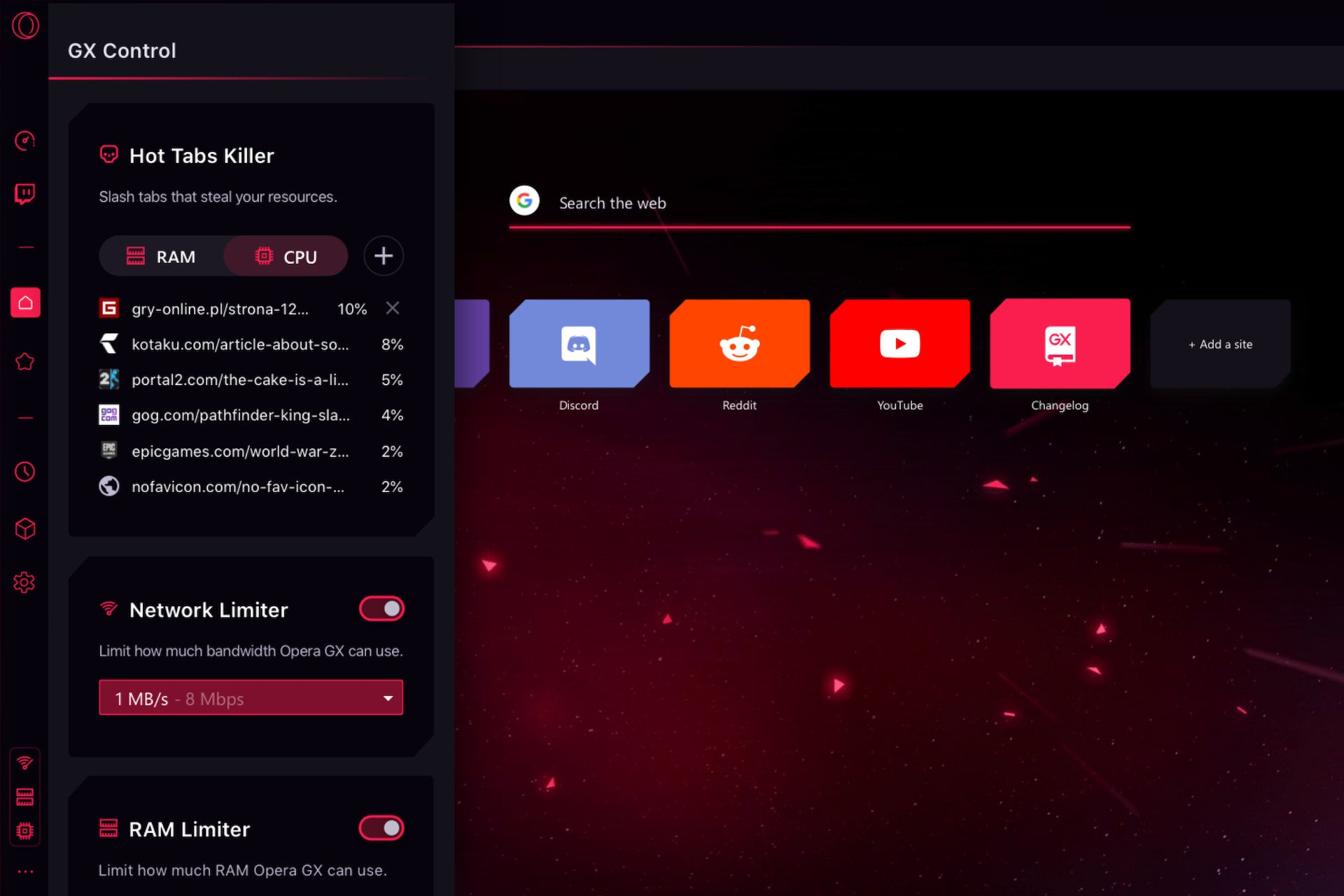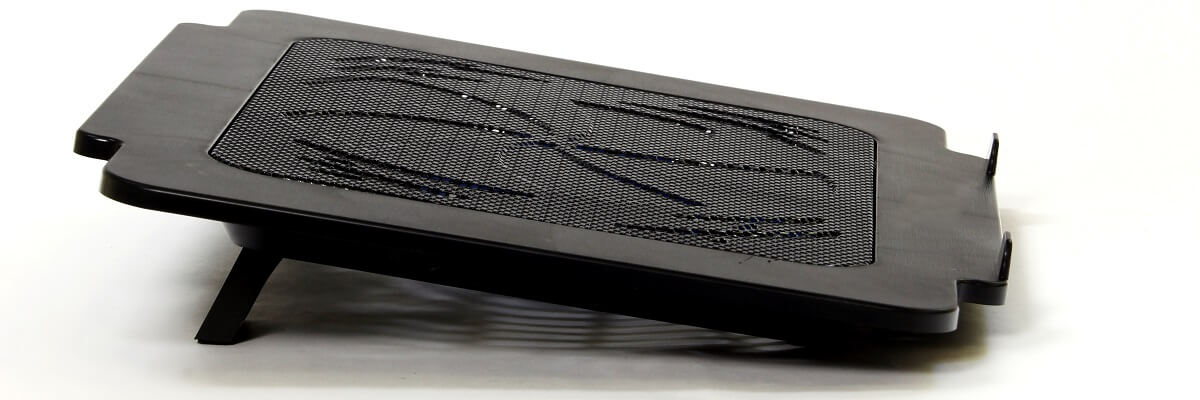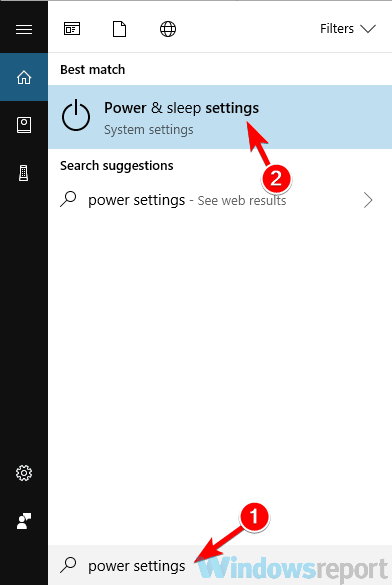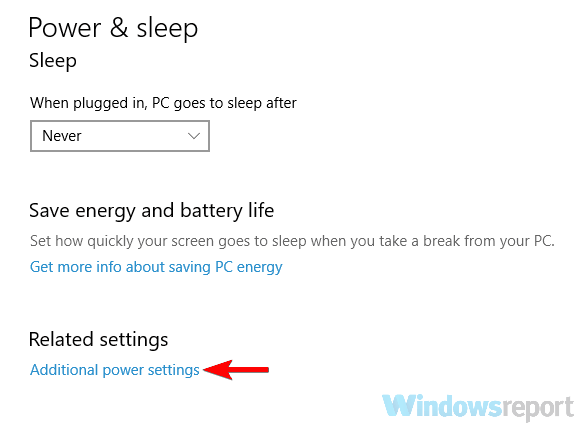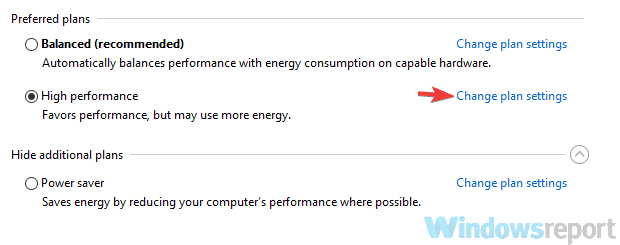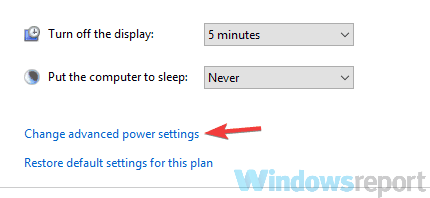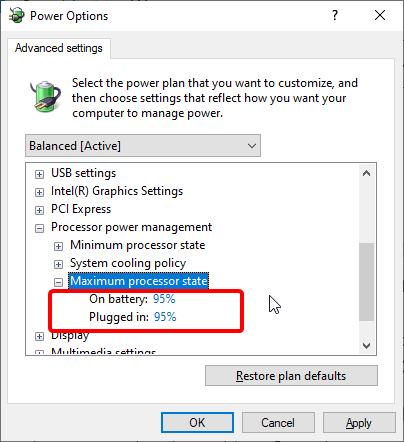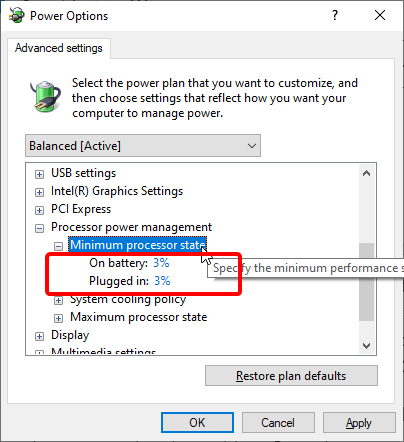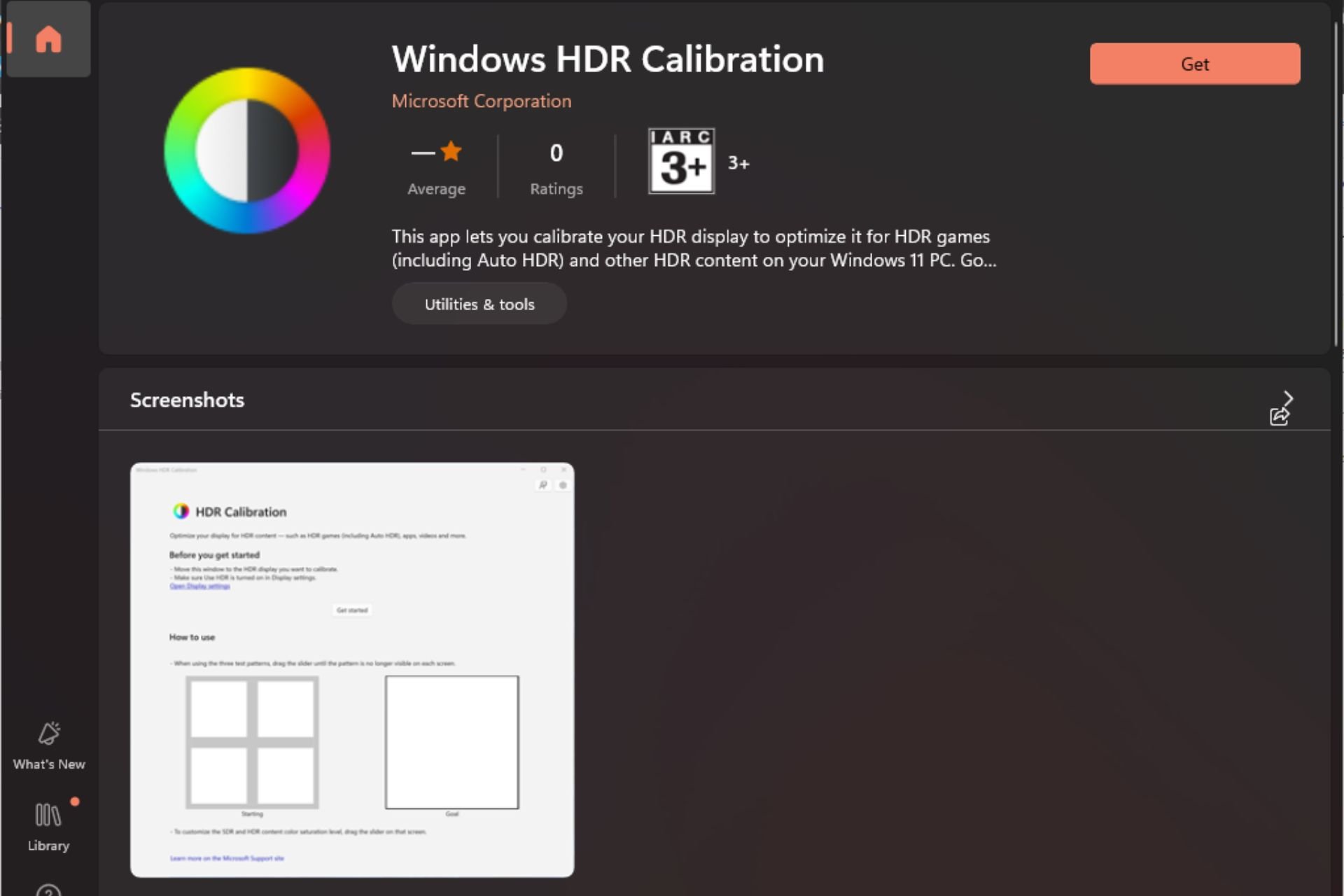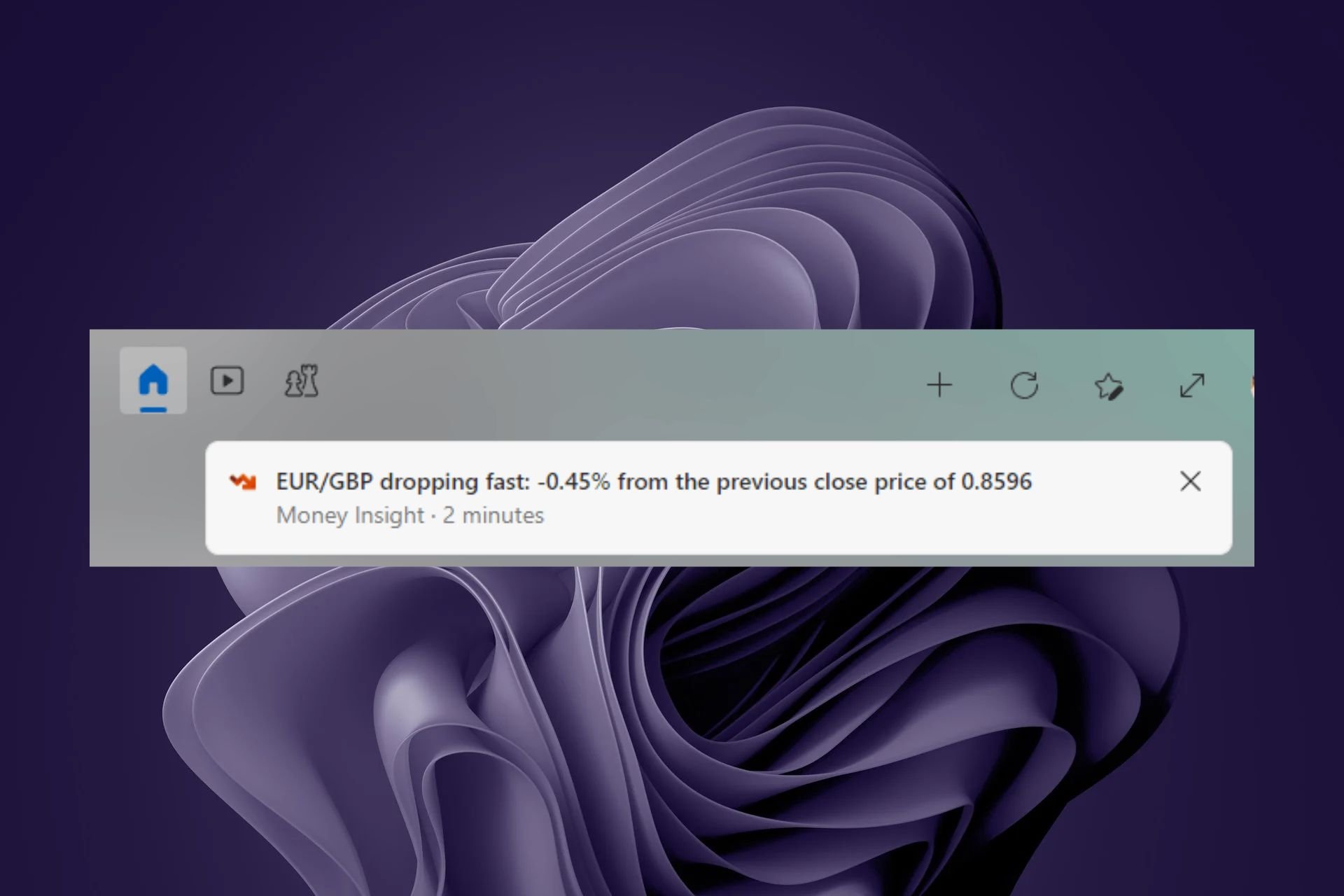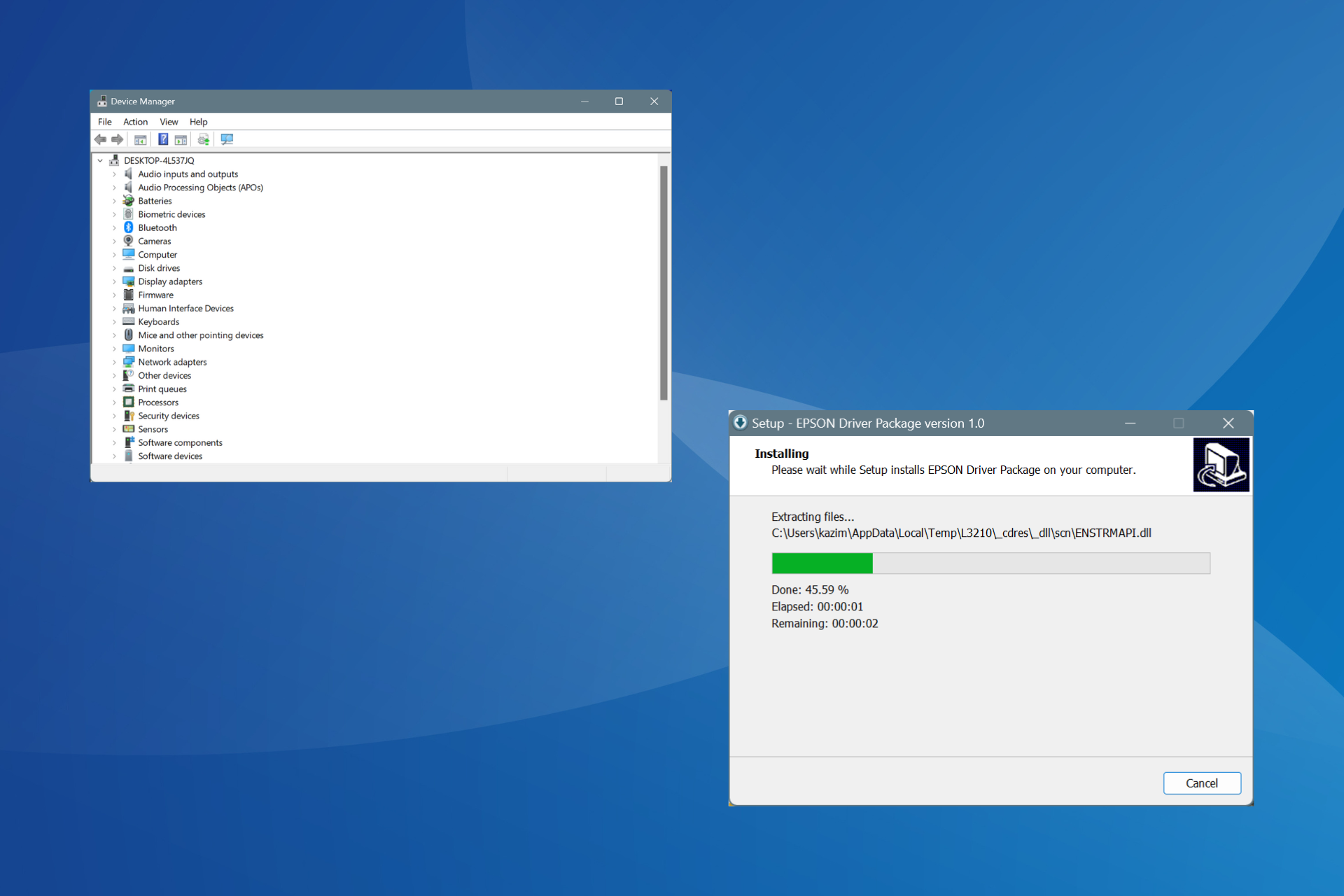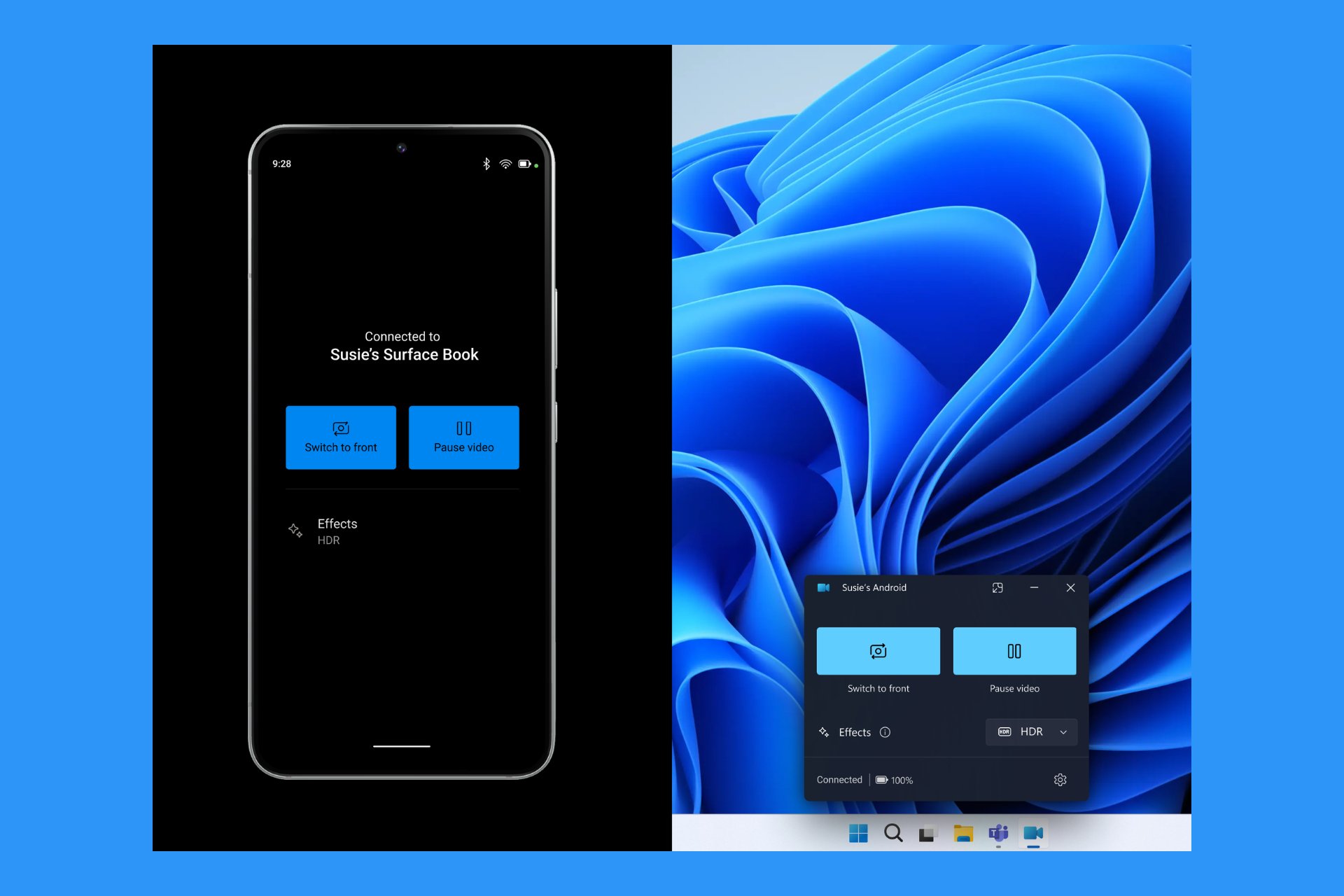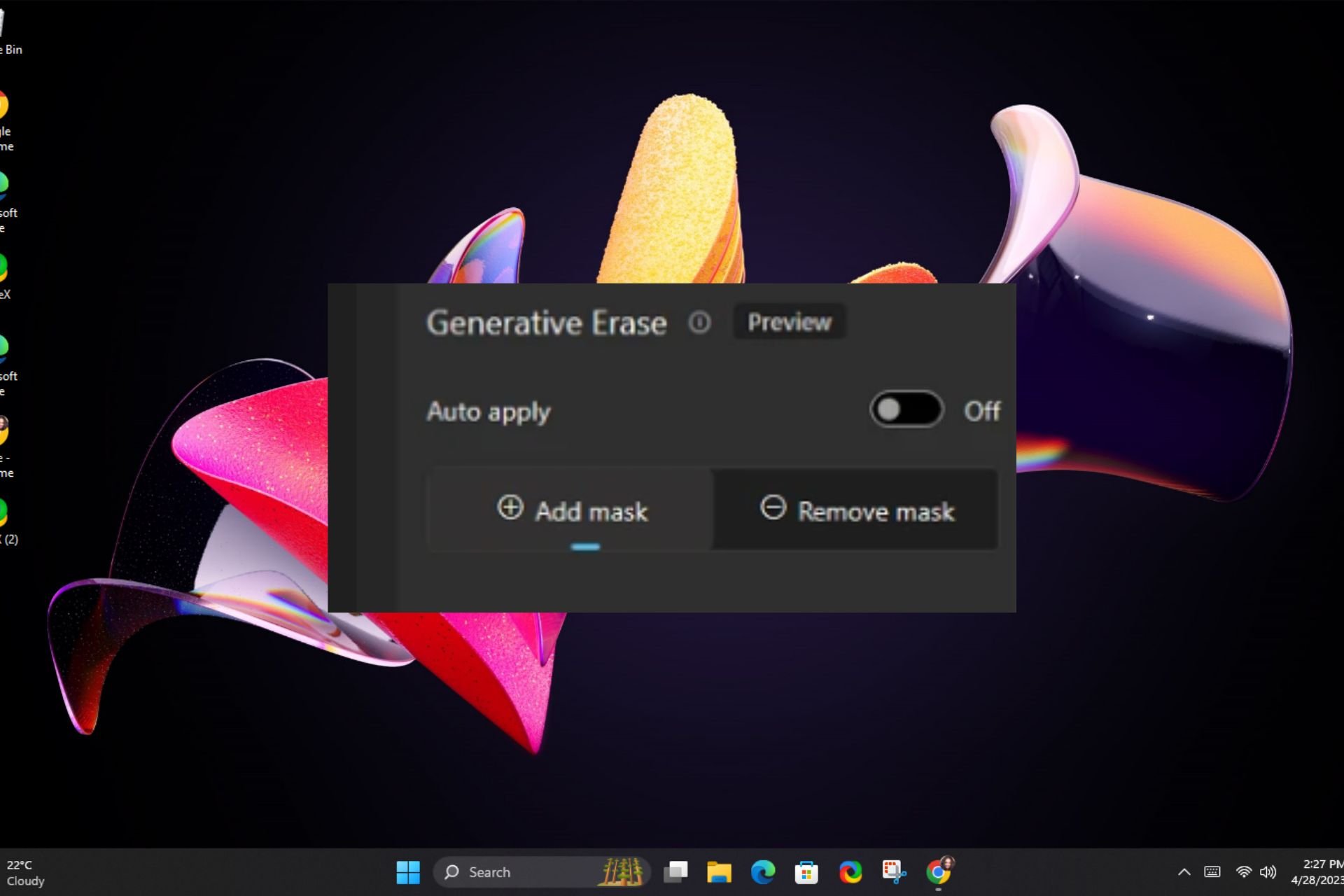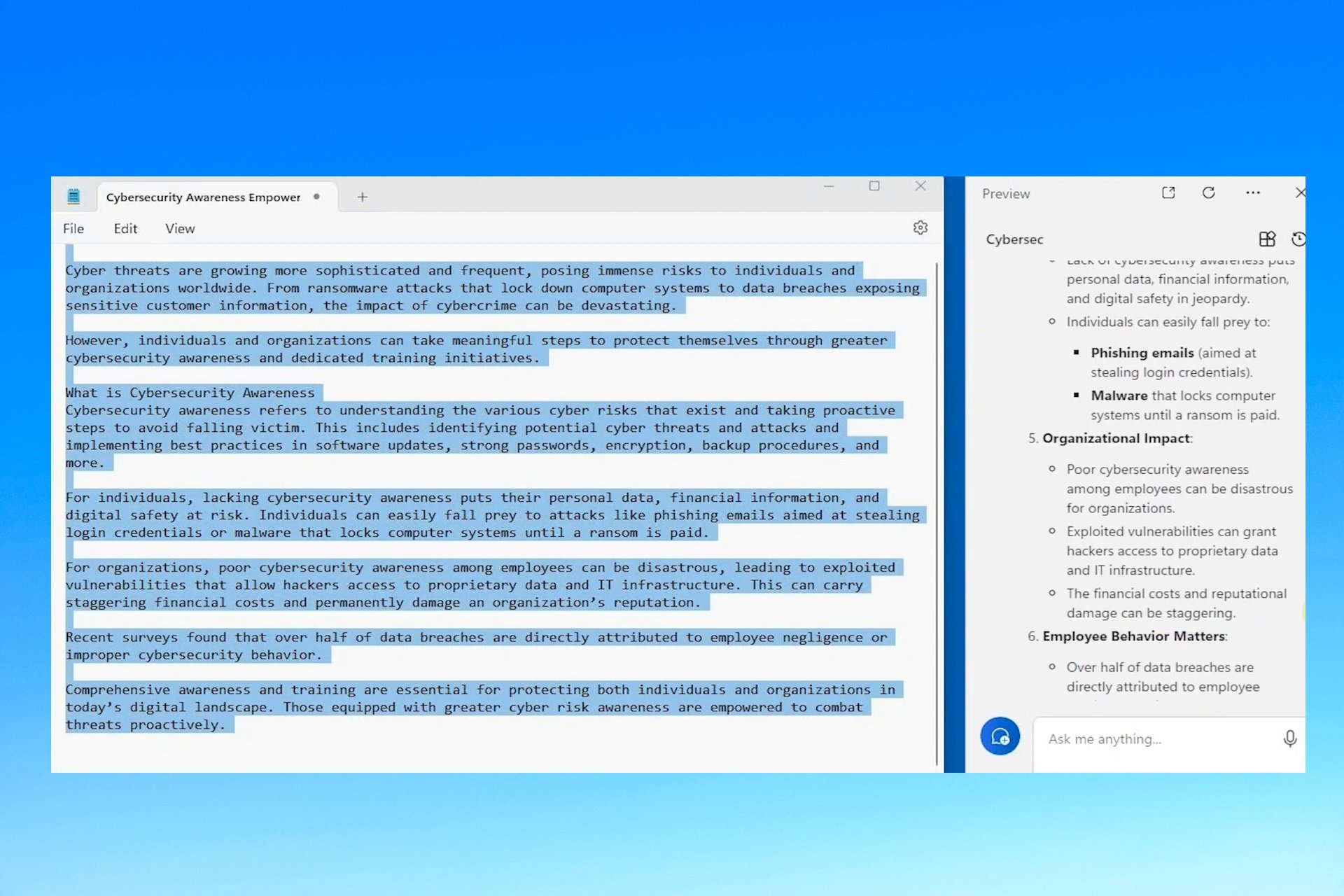10 Ways to Fix Laptop Overheating While Gaming
Changing the processor power management setting can fix this
9 min. read
Updated on
Read our disclosure page to find out how can you help Windows Report sustain the editorial team Read more
Key notes
- The laptop overheating while gaming issue can be caused by dust accumulation in your device.
- Your processor power settings can also cause the issue.
- A quick way to fix this overheating issue is to use an integrated graphics card instead of a dedicated one.
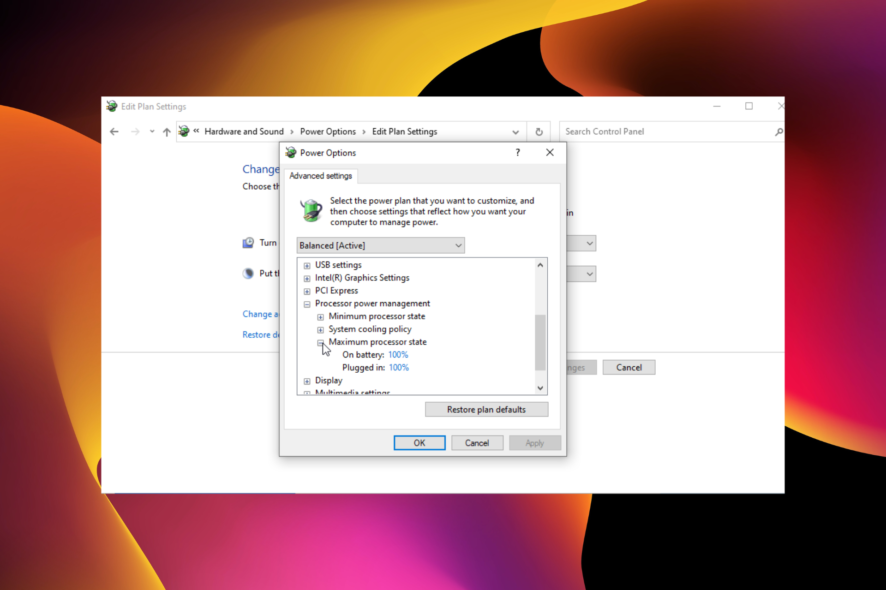
Nowadays, there are many great gaming laptops, but some users reported that their laptop is overheating when playing games.
This can be a big problem; in some cases, it can cause reduced performance and hardware damage. Fortunately, it is not the most challenging issue to fix with the correct information.
This guide will show you how to prevent the laptop from overheating while gaming issue. You only need to follow the steps in this guide, and things should be back to normal.
Why is my laptop overheating while gaming?
Laptop overheating can be a severe problem, and this issue usually occurs while performing stressful tasks such as playing games on your laptop. Speaking of overheating, are the variations of the problem that users reported:
- Laptop overheats and shuts down when playing games: This issue usually occurs if your computer exceeds the overheating limit. To fix the problem, be sure to clean your laptop from dust or try using a cooling pad.
- New laptop overheating: If a new laptop is experiencing overheating issues, it’s possible that your settings are causing it. Adjust your power settings and check if that solves the problem.
- Laptop overheating while gaming and charging: This is another problem that can occur with your laptop, and if you experience this issue, be sure to try all of our solutions.
- Laptop keeps overheating and crashing: Many users tend to overclock their hardware, but that can sometimes lead to various issues such as overheating. To fix the problem, disable overclock settings or underclock your hardware and check if that helps.
Is it OK if my laptop gets hot while gaming?
Gaming is a strenuous activity that takes a toll on your laptop. While gaming laptops are designed to handle this stress perfectly, it is normal for them to get hot while playing games.
The good thing about these laptops is that they have built-in cooling fans. So, you can reduce the heat by ensuring that they are well-ventilated.
How do I fix a laptop if it’s overheating when gaming?
1. Try connecting your laptop to the charger
Many users reported overheating issues on their laptops while playing games. According to users, these issues can occur since some games are intensive in terms of hardware power, and if your laptop can’t provide enough energy, you might experience this issue.
Users suggest connecting your laptop to the charger during gaming sessions to fix the problem. This will provide enough power for your computer so you won’t experience any overheating issues.
This is a workaround, but it might be helpful until you find a permanent solution.
2. Install a gaming browser
When playing games in your browser or browsing, you should manage how much RAM, CPU, and network bandwidth is consumed. The award-winning gaming browser Opera GX is one such application that was designed to address more than simply laptop overheating.
One of these benefits is the GX Control Panel, which is a method that allows you to restrict browser access to computer resources such as CPU and RAM.
The idea is that while the browser is used, it does not consume a lot of RAM and CPU capacity. This allows you to run Opera GX alongside online gaming or other resource-intensive programs.
It keeps the laptop from overheating and also saves battery life when you navigate on Opera GX. In addition, if you have a Discord account, you can log in right from the sidebar and on Twitch from speed dial, with no additional add-ons needed to be installed.
Opera GX
Control resource consumption for your browser, and set limiters to prevent laptop overheating.3. Try using integrated graphics instead of dedicated
All gaming laptops have dedicated and integrated graphics, and if your laptop is overheating, your dedicated graphics may be the problem.
Dedicated graphics uses more power, thus creating more heat, and if you’re playing a hardware-intensive game, you might cause your laptop to overheat.
Users suggest using integrated graphics as a temporary workaround to fix this problem. However, integrated graphics don’t use the same amount of power as your dedicated graphics, so it doesn’t produce the same amount of heat.
However, the integrated graphics don’t offer the same performance as your dedicated graphics processor, so you might not get the best results in certain games.
To set your integrated graphics as the default graphics processor, check your graphics control panels software, such as Nvidia Control Panel or Catalyst Control Center.
4. Use a cooling pad
If your laptop is overheating when playing games, perhaps the problem is insufficient cooling. However, you can fix this problem simply by purchasing a cooling pad.
These devices are pretty helpful and will provide extra cooling to your laptop and help you reduce your laptop temperature.
If you don’t want to purchase a cooling pad, you can try using your laptop on a clean, flat surface. However, placing your laptop on your bed or your lap is a bad practice since its fans can get filled with dust and dirt, and that will cause your laptop’s temperature to rise.
5. Replace your charger
According to users, if you’re having overheating issues when playing games, the problem might be caused by your charger.
Several users reported that their charger was faulty, and that caused the issue of overheating to appear. Once you replace your charger, check if the problem is still there.
6. Try limiting your FPS
While gaming, all users try to achieve a high FPS. Higher FPS means a smoother gaming experience, but sometimes high FPS in games can cause your system to overheat. If your laptop is overheating while playing games, perhaps your gaming performance is causing it.
For example, if you’re getting 100 frames per second in a specific game, your laptop may be using too much of your hardware resources, thus increasing the temperature.
Some users suggest limiting your FPS to a lower value, such as 60. Doing so will put less stress on your graphics card and cause it to heat less.
7. Underclock your graphics card
Many users tend to overclock their graphics cards to achieve better performance. However, overclocking stress your hardware, causing it to generate more heat.
Eventually, overclocking can cause your laptop to overheat during gaming sessions. If your hardware is overclocked, that might cause overheating, so be sure to disable all overclock settings and revert to the default values.
If the problem appears while using the default values, perhaps you want to try underclocking your hardware.
To underclock your hardware, you need to lower its settings to reduce energy consumption and heat production. Remember that underclocking your device will cause reduced performance, but at least it will prevent your laptop from overheating.
8. Change your power settings
- Press the Windows key + S and type power settings.
- Now select Power & sleep settings from the search results.
- In the right pane, go to the Related settings section and click Additional power settings.
- The Power Options window will now appear. Locate your currently selected power plan and click the Change plan settings.
- Now, click on Change advanced power settings.
- Expand the Processor power management section and set the Maximum processor state to a lower value. For example, if your current value is set to 100, set it to 95 or lower.
- Do the same for the Minimum processor state.
- After making these changes, click Apply and OK to save changes.
According to users, if your laptop is overheating when playing games, your power settings may be causing the problem. However, several users reported that they managed to fix this problem by changing their power settings, so you might want to try doing that.
After changing these settings, the CPU utilization should be altered, and your laptop won’t overheat during the gaming sessions.
9. Try elevating your laptop
According to users, sometimes the ASUS laptop overheats while gaming issues can occur if you don’t have good airflow. Your laptop sucks the air from your room and uses that air to cool other components. However, issues with your laptop can occur if you’re blocking the airflow.
One way to fix this problem is to elevate your laptop. Put your computer onto something while using it on a flat surface to allow air to flow better. You can use almost anything to upgrade your laptop if you don’t cover the fans.
For the best results, it’s advised that you elevate your laptop 1 to 1.5 inches off the surface.
This is a crude workaround, but it works according to users, so you might want to try it out.
10. Clean your laptop
If you’re still having overheating issues with your laptop, it’s advised that you clean it from dust. Your fans will get covered with dust over time, and that will cause your temperature to rise.
Therefore, it’s advised that you clean your laptop from dust. You can try opening the bottom of your computer and using the pressurized air to clean the fans and heatsinks.
Bear in mind that opening your laptop will void your warranty, so if your device is still under warranty, perhaps it would be best to take it to the official repair center.
If you don’t want to open your laptop, you can use the pressurized air and clean the fans without opening the laptop. This should help you get out at least some of the dust from your laptop. After doing that, check if the problem is still there.
How hot is too hot for a laptop?
Laptops are programmed to work within a specified safe temperature range. According to consensus, this range is between 10 to 35 degrees C (50 to 95 degrees F).
If your laptop is starting to operate at about 70 degrees C (160 degrees F) while gaming, it is getting too hot and can cause damage. Anything above this threshold is dangerous, and you must quickly shut down your PC to prevent any damage to your hardware.
Laptop overheating issues can be pretty problematic, but in most cases, these issues are caused by overclocking or dust in your device. Hopefully, you were able to fix this problem with one of the solutions in this guide.
If you are facing other issues like laptop overheating while charging, check our detailed guide to fix it effortlessly.
Were you able to solve the laptop overheating while gaming issue with this guide? Feel free to let us know in the comments below.

